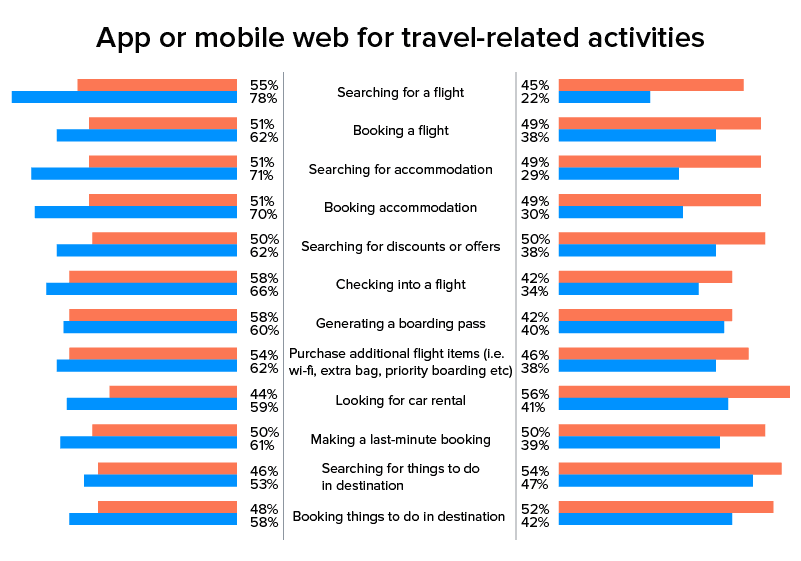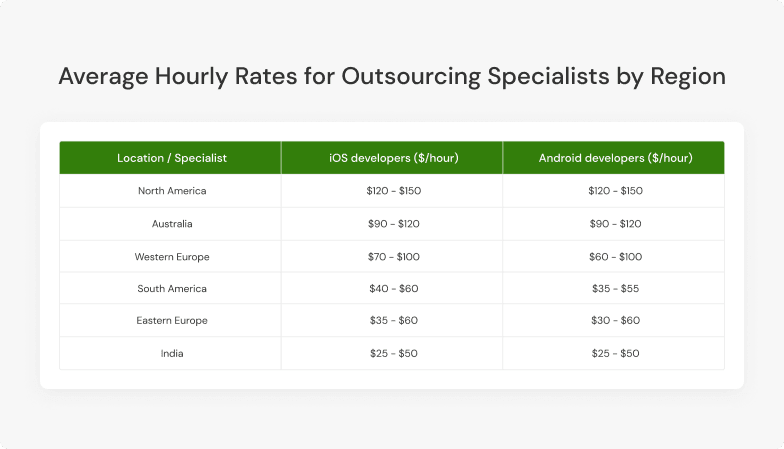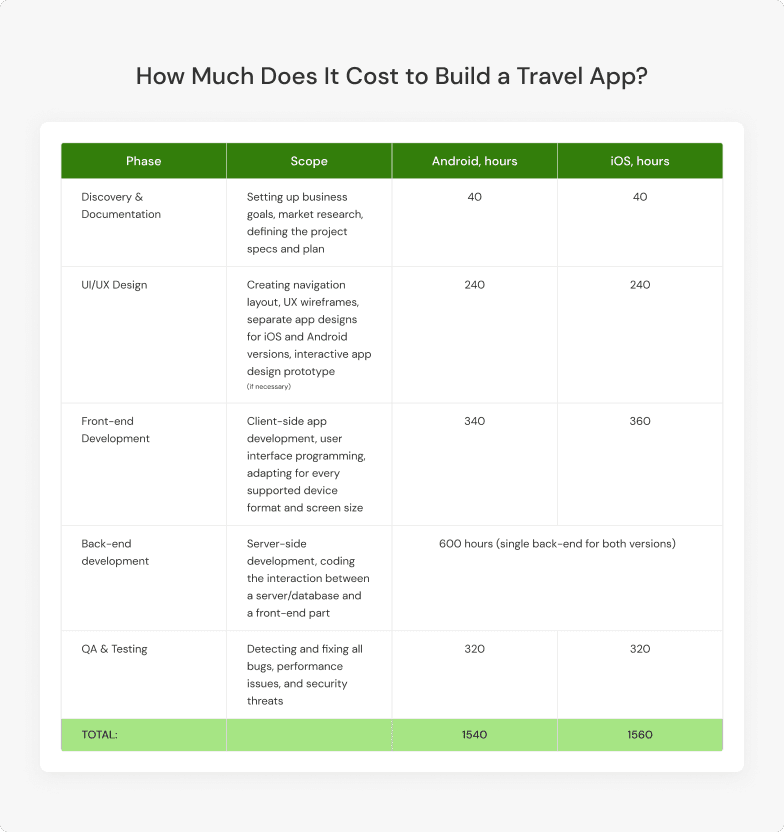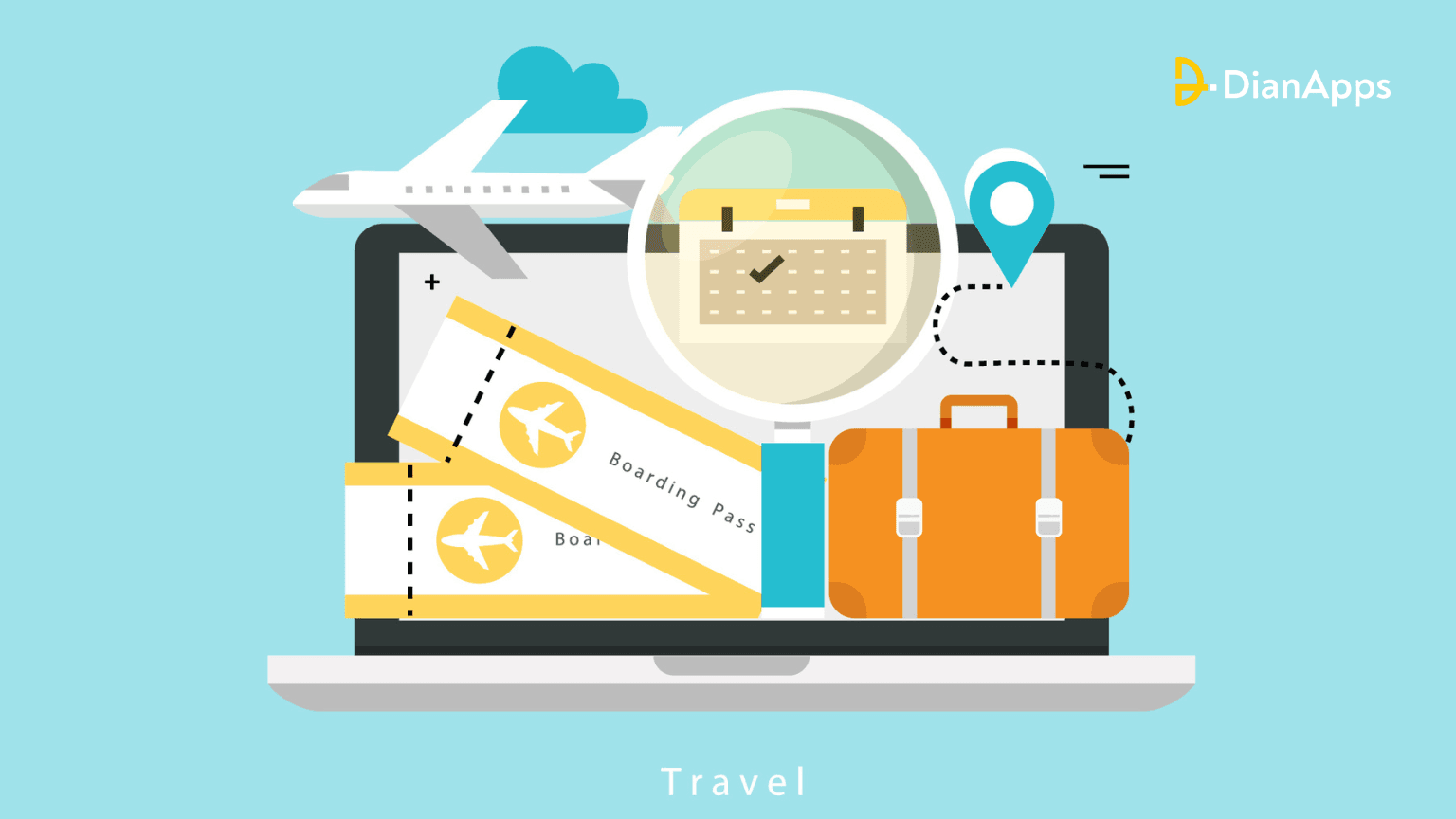There is no denying that the travel industry is competitive. Also, new trends in the global hospitality business are being defined by travel apps.
From Expedia to Airbnb, prominent market leaders in the hospitality sector are devoting resources to the development of dependable, scalable, and feature-rich travel app solutions.
Here’s a detailed analysis of how much it takes to build an app like the house of success – Airbnb.
Every business executive seeking to create and market a travel app for their clients hopes to achieve the same level of success as the above applications.
But how can one build such game-changing applications?
To streamline the implementation of travel app concepts, proper brainstorming, a well-planned product development roadmap, and a financial plan are required.
Every aspirant leader, however, always has a major concern that they want to have addressed: how much will it cost to turn your idea for an app into a working prototype?
This blog post will show you a comprehensive picture of the travel app development cost, investing requisites, stats of the travel app industry, criteria for travel app pricing, and cost estimates.
Why invest in travel apps?
Investing in travel apps can provide significant benefits as the travel industry continues to grow. According to recent statistics, the global travel and tourism industry is projected to reach $11.4 trillion by 2028. With the increasing use of smartphones and mobile devices, travel apps have become essential for travelers, allowing them to book flights, hotels, and rental cars, as well as discover new destinations and experiences. In fact, 60% of all travel bookings are now made on mobile devices. Investing in travel apps, businesses can tap into this lucrative market and provide travelers with the convenience and experience they are looking for.

1. Streamlining business processes
Travel applications can automate and streamline various business processes, such as booking, payment, and communication, resulting in greater efficiency and cost savings.
2. Higher ROI
By investing in a travel app, businesses can benefit from increased revenue due to higher customer engagement, improved customer satisfaction, and greater brand loyalty.
3. 24/7 Business
A travel app allows businesses to operate 24/7, providing customers with real-time access to information, bookings, and customer support.
4. Efficient marketing
Custom mobile app development for travel and hospitality provides businesses with a platform to promote their services, reach a wider audience, and target specific customer segments through personalized marketing strategies.
5. Personalization
By leveraging data analytics and artificial intelligence, travel apps can offer personalized recommendations and experiences to customers, enhancing their overall travel experience.
6. Higher user attraction
In today’s digital age, customers expect seamless and convenient travel experiences. Investing in a user-friendly and feature-rich travel app can attract and retain more customers, resulting in increased revenue and profitability.
Also read: Ride-Sharing App: Cost, Features, and Development Process
Stats Revealing the truth behind the travel app industry
Over the past few years, the travel app market has experienced phenomenal growth. The increased use of social media and cell phones is largely to blame for this. Nowadays, travelers are likely to book their hotels, tours, and flights via smartphone applications. There is more competition as the market for travel and tour apps expands. Let’s look at some additional statistics regarding the travel app market.
- In the US, almost 61% of visitors have used their smartphones to plan their trips and schedule their tours.
- 84% of international airlines will adopt AI technology during the next three years.
- Chatbots will be used in apps by 26% of the organizations that build travel software.
- Around 21% of passengers worldwide have used mobile travel agency applications while making payments using secure payment gateways.
- These most recent statistics make it very evident how crucial it is to create travel and tourism applications now.
Criteria for Travel App Pricing
Development Approach:
Native technology: Use native programming languages to build separate mobile apps for each platform that is supported. It is the finest method for maximizing platform and hardware capabilities.
App builder: You can develop software with ready-made travel app creators without knowing how to code. They are less expensive than custom software development but lack some advanced features and customization.
Hybrid technology: By placing a web application inside a native container, it is possible to develop native-like mobile experiences for both Android and iOS while maintaining a single codebase. For every platform, you do not need to create a unique set of codes.
Depending on the project’s needs, the appropriate strategy must be chosen. As a less expensive option to a native method, many clients, for instance, prefer hybrid development. Yet, using a hybrid framework to meet the demands of complicated travel software may require spending more money than native development. Thus, It makes sense to consult professionals to determine the most effective strategies in each situation.
To know more about how custom software development can benefit your business, check this out!
Complexity and features
The number of features and their level of complexity determine the length of time required for the development. Costs increase with the length of time required. The team size that will be hired will also be based on these considerations.
Building an MVP version, or minimum viable product, can help you save money on the initial development because it has the essential capabilities needed to run your business through the app. For instance, a travel agency app may merely include product lists for customers to book without reviews, virtual excursions, or other extras
MVP assists in cost-saving, hastening the release of a mobile app to market, and speeding up the processing of online orders. It decreases the chance of suffering large losses from the release of a full app version without first testing the concept in a real-world setting.
Business model
The travel sector typically uses one of two business models:
- A “business to customer” (B2C) approach is offering your services directly to clients through a platform (a mobile app or website)
- A “business to business” platform, or B2B, refers to offering customers the services of other businesses through your platform. You run a business by “reselling” goods from other suppliers.
Due to the inclusion of more third-party services to interchange data between databases, get data from the original suppliers, and other functions, the cost of a B2B application will be greater. Simply put, the price is 20% to 30% higher than for B2C app development.
Team location & size
In the IT industry, location has a big impact on how much the same services cost. For instance, the price to develop a travel app from US developers may be several times higher than the cost to conduct the same type of work from developers in Eastern Europe. For this reason, if you have a certain spending limit for a project, you may want to think about choosing an outsourcing partner from a country with reduced costs. There are some risks, but you can handle them effectively.
Expected time to market
Your team will likely be working on the ready-made app under pressure if you need to launch it by a specified date since you are in a rush. In order to finish the entire scope of work more quickly, you’ll also need to hire more developers and other specialists. Tight deadlines typically result in higher rates and increased overall costs to complete the project.
How much does it cost to build a travel app?
Let’s investigate the potential of creating a native mobile travel app for the iOS and Android operating systems. Regardless of the approach chosen, the app development lifecycle will be the same, but the schedule and the extent of the work may differ.
The cost to develop a travel app for the Android operating system is typically 20–30% greater because it necessitates altering compatibility with various devices and screen formats as well as more testing.
The following table lists the general hourly rates for iOS and Android developers in various locations:

Let’s analyze the following phases that a general app development project can have:

Let’s use the $50/h average hourly rate for developing custom mobile applications in Eastern Europe as the starting point for our rough cost estimate. As a result, the total cost of creating the iOS and Android versions will be $150,000, or 300 hours at $50 per hour.
A hybrid or cross-platform application will cost less to develop because fewer resources are needed. The appropriate development strategy should be chosen based on the project’s other requirements and necessary features.
The above estimate assumes that the travel application is a fully functional native one and has all the required functionality. Depending on the fundamental feature set you choose, the creation of an MVP version will cost between $10,000 and $50,000.
According to your needs, each unique project’s estimation should be completed. To find out how much it will cost your company to construct a travel app, send your specifications to our team of mobile app developers.
Travel App Development Cost Estimates
1. Location of the service provider
The geographic location of the developer is a crucial issue to take into account if you’re looking to outsource mobile app development services for your travel app idea. Significant regional differences can be seen in the expenses of development. Even if you take into account various hiring methods for the services, the total cost of development could vary by as much as 40% to 70%.
2. Backend Architecture
The core components of your product’s features, along with their specific functionalities, are the emphasis of the backend architecture of a travel application. Setting up a quick, faultless, and adaptable working model is made possible by a strong backend.
By implementing the appropriate backend architecture, you can make sure that the database and other application components can communicate easily. 30–40% of the overall cost of developing a travel app may go towards the backend infrastructure.
3. Development Methodology
Business owners are making their apps cloud-efficient with agility and clarity of vision in the development approach thanks to an increase in the adoption of SaaS goods and internet-based services. You can reduce development expenses and the amount of time required for implementation by picking the appropriate development tools, techniques, and methodologies. The cost of developing a travel app can vary by 20–50% depending on the development process.
4. Technology incorporation
Use cutting-edge technologies to draw customers if you want your travel app to stand out from the competition. If you too want to do that, be aware that the cost of mobile app development will increase when more technologies like AR/VR, IoT, and Blockchain solutions, etc. are added.
5. The Expenses Beyond Development
A new product launch is not only about web app development. There are a few more essential things to put in place, yet they are often during the estimation:
6. Market Research
Detailed market and competitive research, business analytics, and risk analysis are frequently required before a new product is launched.
7. Promotion & marketing
Investment is also necessary for marketing initiatives like promotions and advertising, as well as SEO optimization and other client attraction strategies.
8. Maintenance & upgrades
As a general rule of thumb, 20% of the initial development cost may be required for updating and supporting the application after it has been released.
Embark Your Expedition Travel App Development with DianApps
Are you stuck on the idea to create a travel app? Or are you wondering where to start and whom to trust with your app development project? If so, you’re not alone. Many businesses and entrepreneurs face similar challenges when it comes to developing a travel app that meets their requirements and delivers an excellent user experience.
That’s where DianApps comes in. Being a reputable travel app development company that has a proven track record of delivering high-quality, fully functional mobile and web applications. Our team of expert developers and designers can help you build a travel app that not only meets your needs but also exceeds your expectations. Read this out to be sure enough about DianApps being the best partner for mobile app development.
But don’t just take our word for it. We’ve worked with many clients in the past, including Newbe, a company that helps people move into a new city.
With our experience, expertise, and commitment to excellence, we can help turn your travel app vision into a reality. Contact us today to learn more about our services and how we can help you achieve your website app development goals.
In a Nutshell…
The user experience of a good travel app is mostly focused on effectiveness and quickness. Your travel app will start to sniff success if it has a strong search engine, an intuitive user interface, transparency, a touch of customization, and a selection of rock-solid payment options. The one thing you must remember is that trends are changing more quickly.
The quality of mobile and online apps is improving as user expectations rise. Constantly scrutinize your software, all of its components, and features while keeping an eye on how it functions in the real world.










Leave a Comment
Your email address will not be published. Required fields are marked *